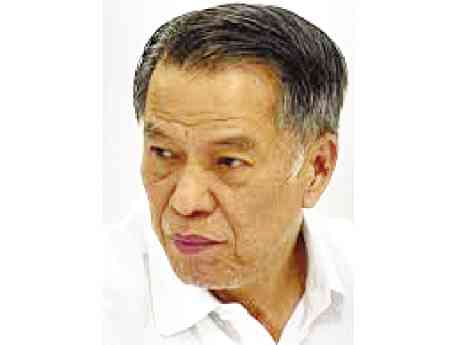Happy to stay away from mergers game
Family businesses are alive and well in the Philippines and more than a dozen were worth more than a billion dollars at the end of last year.
Most of the country’s major banks are owned by local billionaires or near-billionaires, many of whom want to hang on tight to these crown jewels.
The closely held nature of the Philippines’ largest banks has stalled regulators’ efforts to establish a financial system with fewer but stronger players—a situation desired by many investors.
“They like having banks, and if it’s making money, they can live with it,” Bangko Sentral ng Pilipinas (BSP) Deputy Governor Nestor A. Espenilla Jr. said in a recent interview.
The Philippine banking sector remains overcrowded, with the bulk of assets spread out over 36 universal and commercial banks that control 90 percent of the industry.
Congestion seems more pronounced among smaller rural and cooperative banks—over 500 of them—that offer a limited set of services to small populations in individual towns.
Article continues after this advertisementAmong the country’s 16 billionaires, according to Forbes magazine, 10 have controlling interests in major banks.
Article continues after this advertisementBDO Unibank, Metropolitan Bank & Trust Co., and Bank of the Philippine Islands (BPI)—the industry’s three largest players—are owned by three of the largest conglomerates in the Philippines.
Despite their dominance locally, these three banks are dwarfed by counterparts in the region. Singapore’s DBS alone is roughly as big as the Philippines’ entire banking industry.
“Banks are owned by big conglomerates. That has been an impediment to mergers and acquisitions (M&As),” said Ivan Tan, Financial Institution Ratings director at Standard & Poor’s Singapore.
Cezar Consing, head of the country’s largest bank BPI, said the company was happy staying away from the M&A game. Given its size, BPI was a “natural acquirer,” Consing admitted.
“But I don’t want to leave the impression that M&A is on top of our agenda,” he said. “Organic growth is our agenda.”
Because many families liked the idea of owning banks, apart from the fact that banks were profitable, very few were willing to sell, he said. If and when discussions for a possible sale take place, prices are often inflated, making acquisitions too expensive.
Espenilla said many of the country’s smaller banks—mostly countryside lenders with only a handful of branches each—were merging or being acquired by white knights. But these rural and cooperative banks are only less than 2 percent of the industry.
The last major merger that took place in the banking industry was between Philippine National Bank (PNB) and Allied Bank, forming the country’s fourth largest privately-owned lender. Both PNB and Allied were owned by Lucio Tan, the country’s richest man, and the transaction was less a case of industry consolidation and more of the streamlining of a taipan’s assets.
More recently, Henry Sy’s BDO finalized its takeover of One Network Bank, one of the larger players among countryside lenders.
Stable economic conditions hinder consolidation. The country’s growing economy means industry profits remain healthy, and low banking penetration gives banks more room for growth.
“We’re still underbanked so it’s OK to concentrate on growing,” Maybank ATR KimEng analyst Katherine Tan said in an interview.
Bank assets have grown to as much as P11 trillion, or three-fourths of the country’s gross domestic product last year, a report from the US Agency for International Development this year showed. In comparison, Brunei’s banking industry had assets worth 365.7 percent of its GDP, Cambodia with 85.3 percent, Malaysia with 193.9 percent, Singapore with 575.5 percent, and Thailand with 123.1 percent.
BSP’s Espenilla said recent regulations that make banking harder for smaller players might push more lenders to join forces.
Last year, the BSP ordered banks to set aside more capital as buffer for potential losses. Domestic systemically important banks (DSIB), or companies deemed too big to fail, would also be required to increase capital by 2019.
The Philippine banking system’s recent liberalization also promises to make the industry more competitive. In 2014, Congress passed a law opening the local banking industry to more foreign players. So far, the BSP has approved the entry of five new foreign banks—all leaders in their respective home markets.
Espenilla said the new players in the market may keep operations small in the meantime, but these companies are expected to grow larger in time.
“Down the road, with capital requirements and the entry of new competition, locals will have to assess their position to see if it still makes sense and if they can still be competitive,” he said.
Other rules are also set to be unveiled in the coming months, including requirements on minimum leverage and liquidity ratios, which may prove difficult for smaller banks to comply with.
In July 2015, the BSP unveiled its new Consolidation Program for Rural Banks (CPRB), an incentive scheme aimed at encouraging smaller rural and cooperative banks to merge and form stronger entities. This complements the Strengthening Program for Rural Banks, which provides financial and technical assistance for “white knight” investors buying into small lenders.
Whether efforts to bridge gaps in the country’s fragmented banking sector will bear fruit remains to be seen. But the BSP is unconcerned.
“We want well-run banks, regardless of what the final number turns out to be,” Espenilla said.


